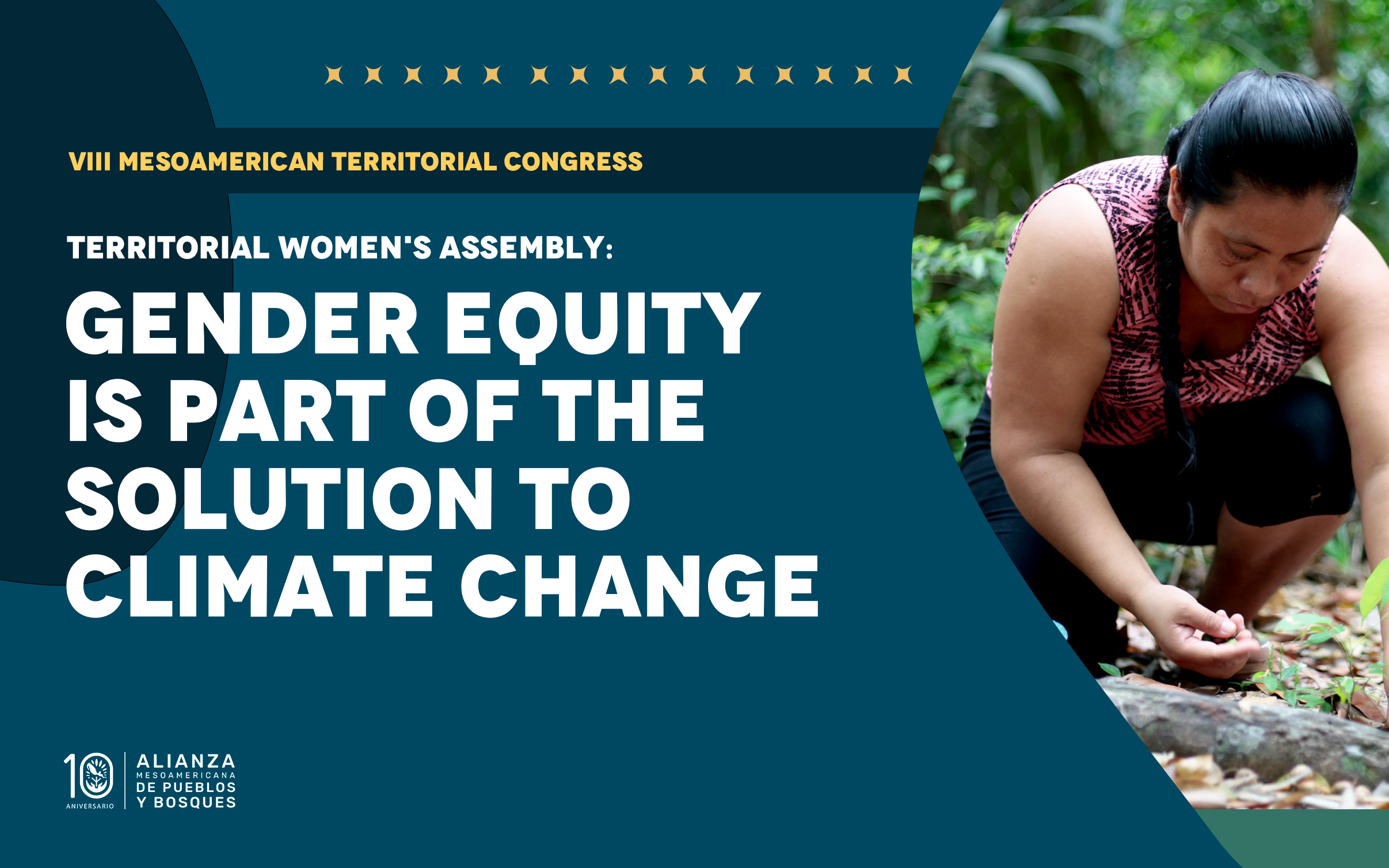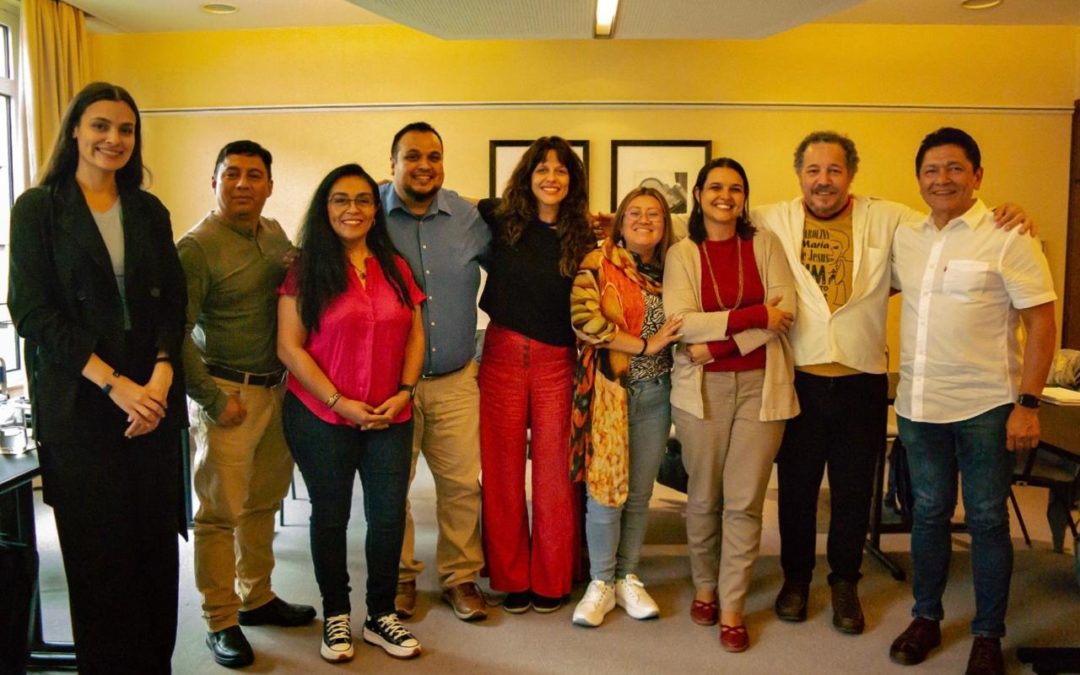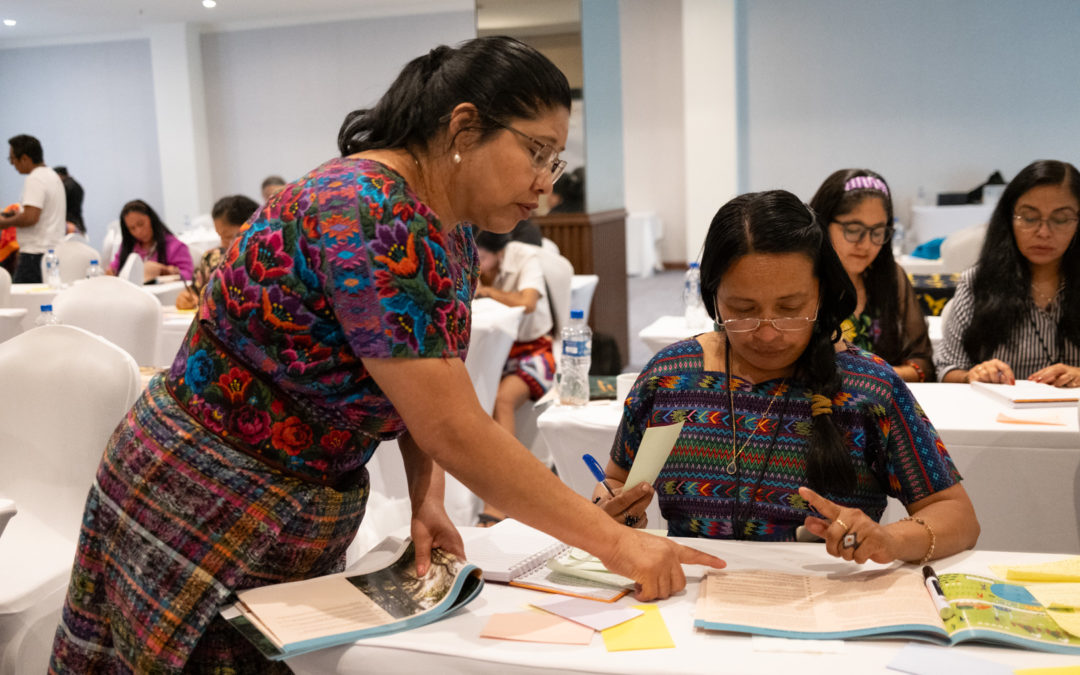Coordinator of Territorial Women Leaders of Mesoamerica (CMLT) report reveals that gender-based violence is the main cause of women’s absence in local political processes.
CMLT is positioned as a unique space in the region due to the territorial leaders’ legitimacy and its local agenda with global echo.
The delegates of the Coordinator of Territorial Women Leaders of Mesoamerica (CMLT) celebrated their Territorial Women Assembly this Tuesday, December 8th. The event was held as part of the VIII Territorial Mesoamerican Congress with the goal to analyze the close relationship that exists between gender-based violence and the effects on climate change, intending to further strengthen the work of the Coordinator in its strife for gender equity and the political participation of women of indigenous peoples and local communities.
During the Assembly, the CMLT presented the report “Perspectives of the Coordinator of Mesoamerican Women Leaders’ agenda”:
Main achievements
The Coordinator of Territorial Women Leaders of Mesoamerica the Mesoamerican Alliance of Peoples and Forests (AMPB) celebrates two years since its foundation, in which it has focused on seeking empowerment and business entrepreneurship for indigenous women.
In this time, the report concludes, it has become a unique platform in the region with legitimate leaders who can serve as the closest link between governments, cooperation agencies,and women, as a means to develop policies with broad participation and equity. The CMLT offers women a chance to access economic resources and develop programs that address the broad agenda of issues affecting women of indigenous peoples and local communities.
One of the major developments in this regard is the creation of the Mesoamerican Fund for the Strengthening of Entrepreneurial Capacities of Indigenous Women and Community-Based Organizations (FOMUJER), which poses an opportunity to bring flexible financing to the territories, support business activities and political participation of women. This initiative can serve grassroots women, with a financial mechanism that can channel resources and be a facilitator for funds that fail to reach the territories.
Another key accomplishment is the evidence that women leaders are achieving local organizations’ openness and recognition of women’s active participation in decision-making processes at a local level. The report shows that women’s contributions are being made visible in national and local construction processes as a result of their joint efforts.
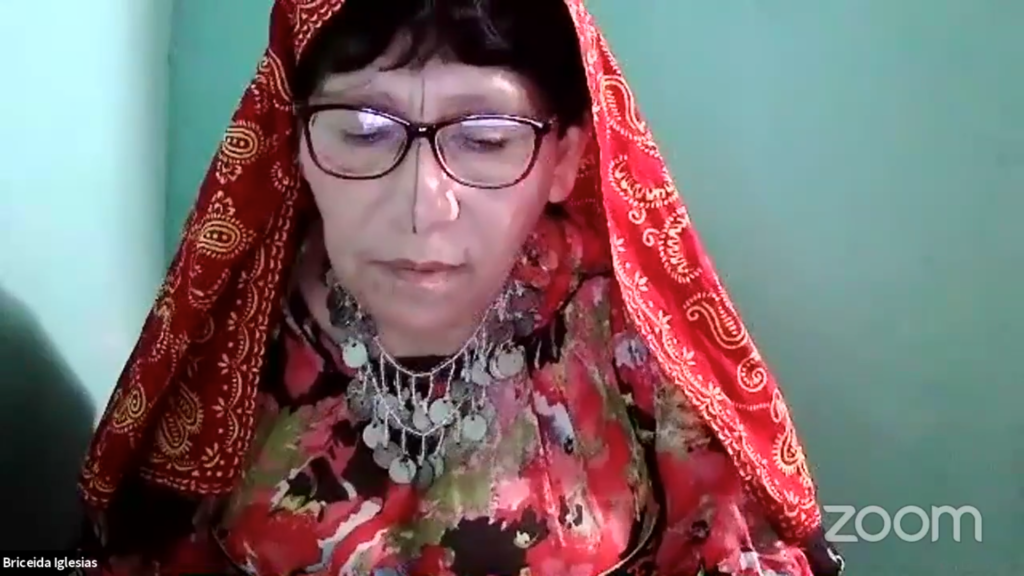
Briceida Iglesias: Spiritual invocation 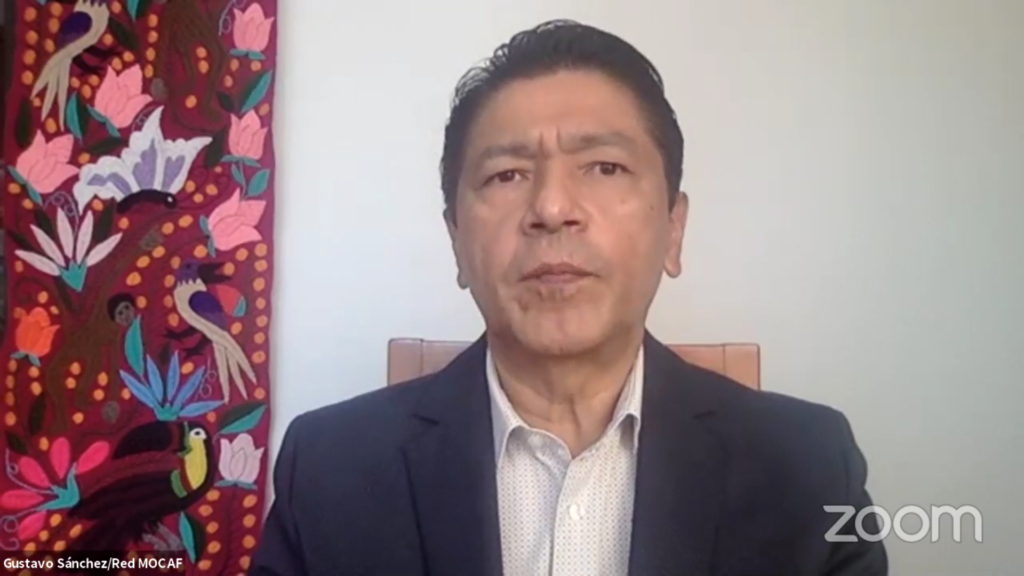
Gustavo Sánchez, AMPB Executive Commission: Welcome 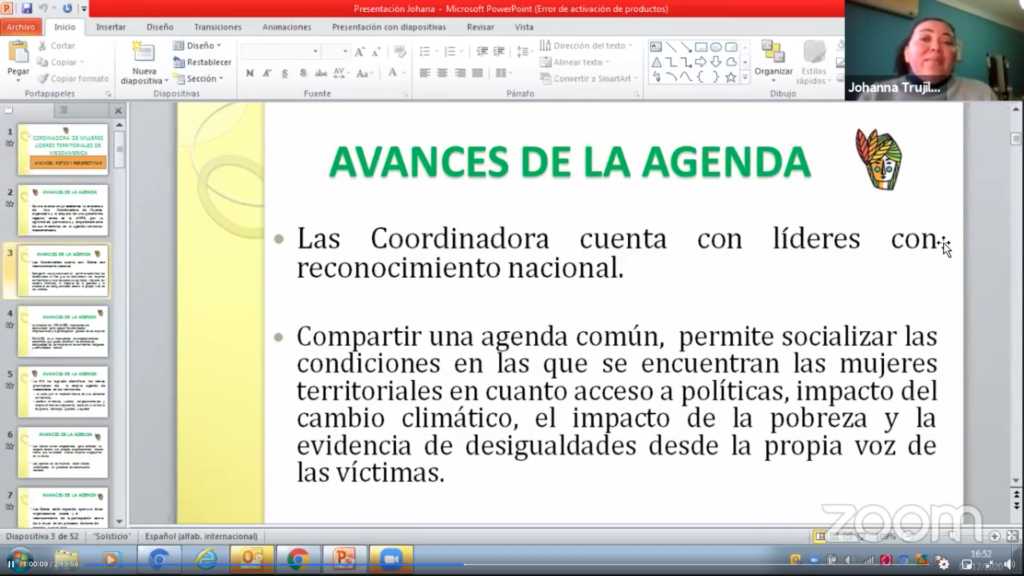
Johanna Trujillo, gender advisor: Report 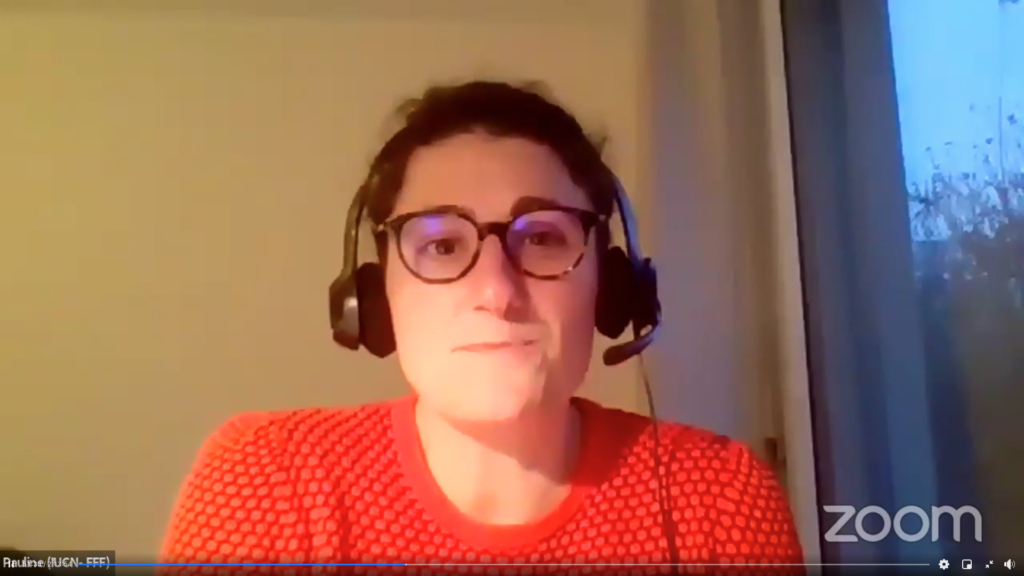
Pauline Buffle, FFF: Commentator 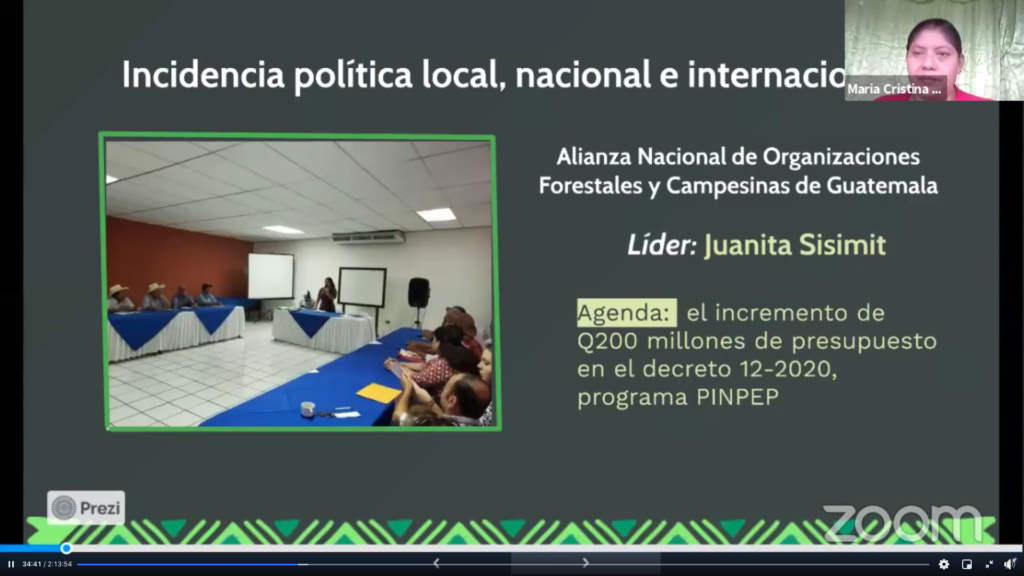
Maria Cristina Feliciano, CMLT
delegate: Advances and challenges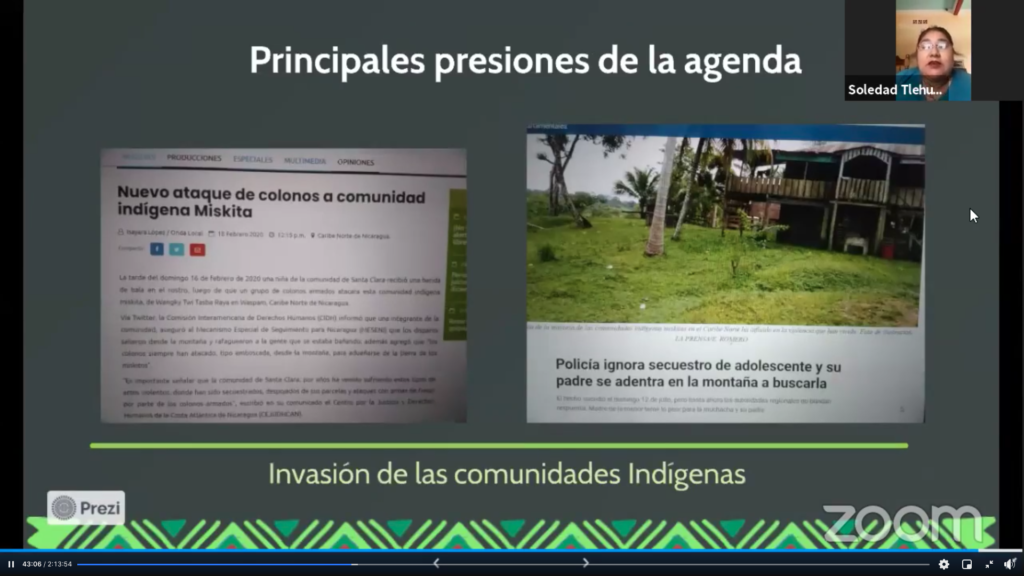
Soledad Tlehuactle,, CMLT
delegate: Advances and challenges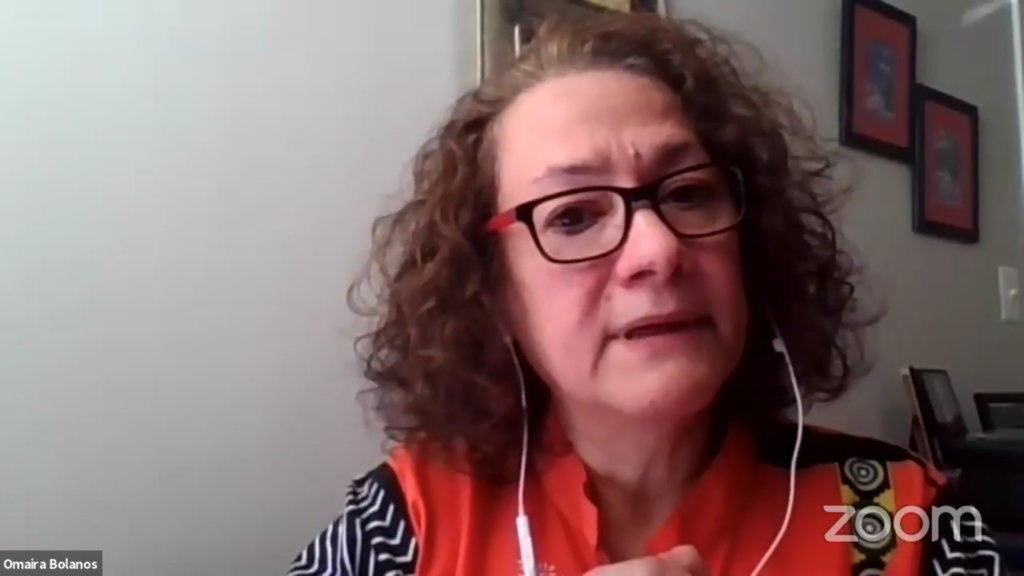
Omaira Bolaños, RRI: Commentator 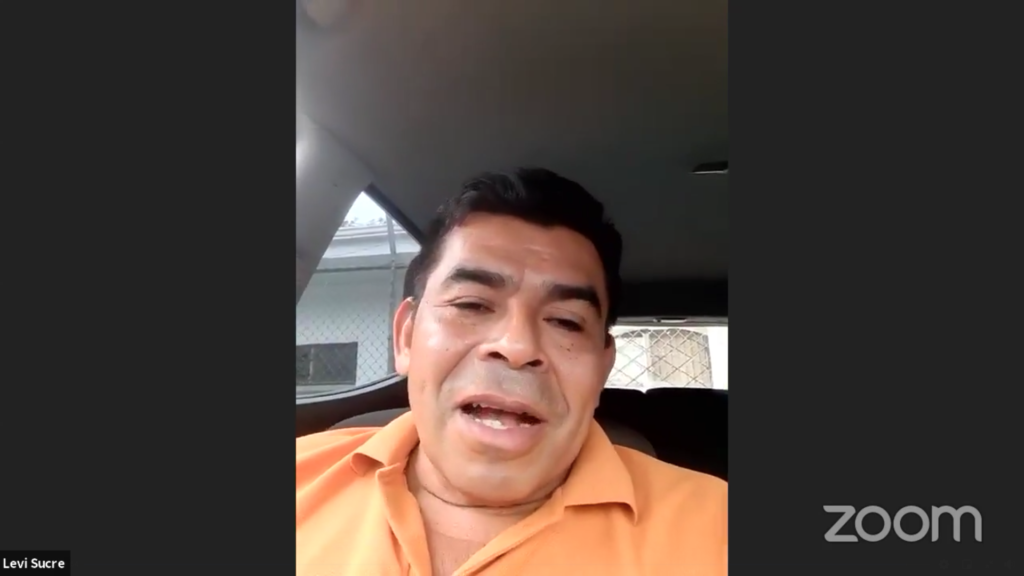
Levi Sucre, AMPB Coordinador: Closing 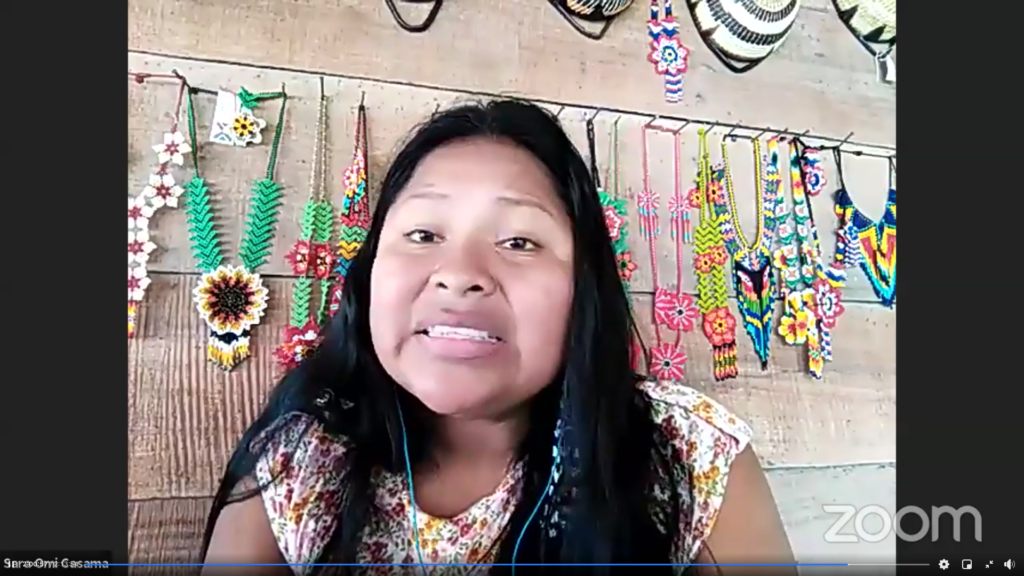
Sara Omi, CMLT President: Conclusions
Status of women’s participation
However, the overall picture of women’s participation posits considerable challenges. The report concludes that gender-based violence is working as a tool to reinforce inequalities and is the primary cause of women’s lack of participation in local political processes. This situation has a long-term impact on women’s self-esteem, the development of their families, and the improvement of communities.
”Every day we have more evidence that the indigenous and local women’s participation is vital for the protection of biodiversity and peoples’ advancement; we will continue to influence Mesoamerica and the world so that climate funds and development initiatives it is in everyone’s best interest for women to be part of the equation”.
Sara Omi, President of the Coordinator of Territorial Women Leaders of Mesoamerica
Furthermore, the report mentions that the conservation and sustainable development efforts of indigenous peoples and local communities do not consistently include conduits to expand opportunities to address gender gaps, including the eradication of violence against women and poverty reduction. Considering these aspects would strengthen the achievement of the Sustainable Development Goals thoroughly and compellingly.
For this reason, the Coordinator of Territorial Women Leaders of Mesoamerica restated its commitment and already adjusted its lines of work to promote gender equality in indigenous peoples and local communities and, thus, contribute significantly to the creation of sustainable environments that enhance participation and territorial management.
About the Coordinator
The Coordinator of Territorial Women Leaders of Mesoamerica arises as an initiative of the ten organizations that make up the Mesoamerican Alliance of Peoples and Forests (AMPB), since its creation in November 2018 at the Alliance’s Annual Assembly, in June 2019. Ten women representing each of the organizations constitute the Coordinator, with its own agenda and structure. Through it, the AMPB channels, manages, and promotes the socio-political and economic development component of women.
This space, created within the AMPB, has allowed women leaders to bring their own voice to various spaces of dialogue and advocacy, to share the same vision, a common cause in the region, where they are the protagonists of their projects and initiatives based on their reality, their environment and their experiences. This platform opens the doors to women at the grassroots, so that they can present their demands on a regional and international level.
